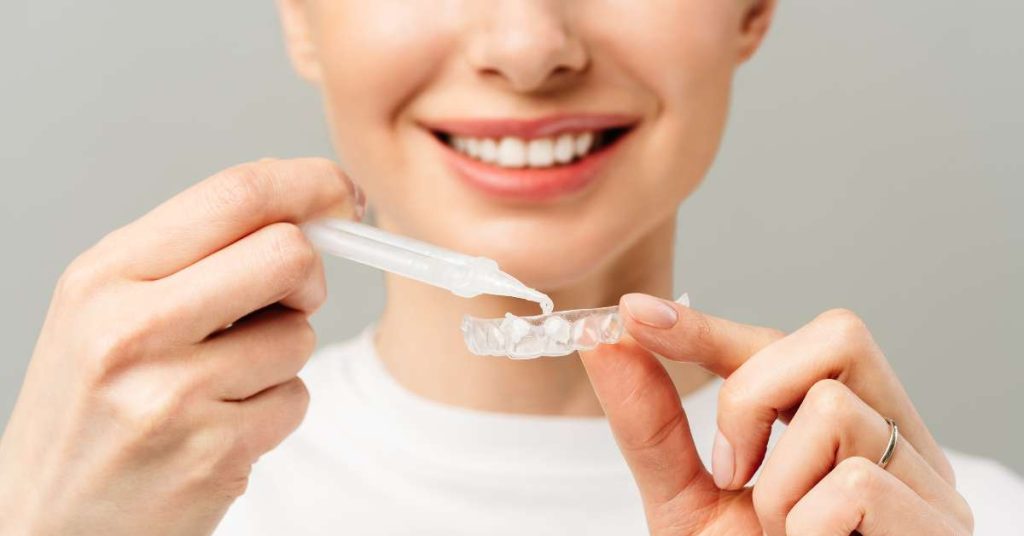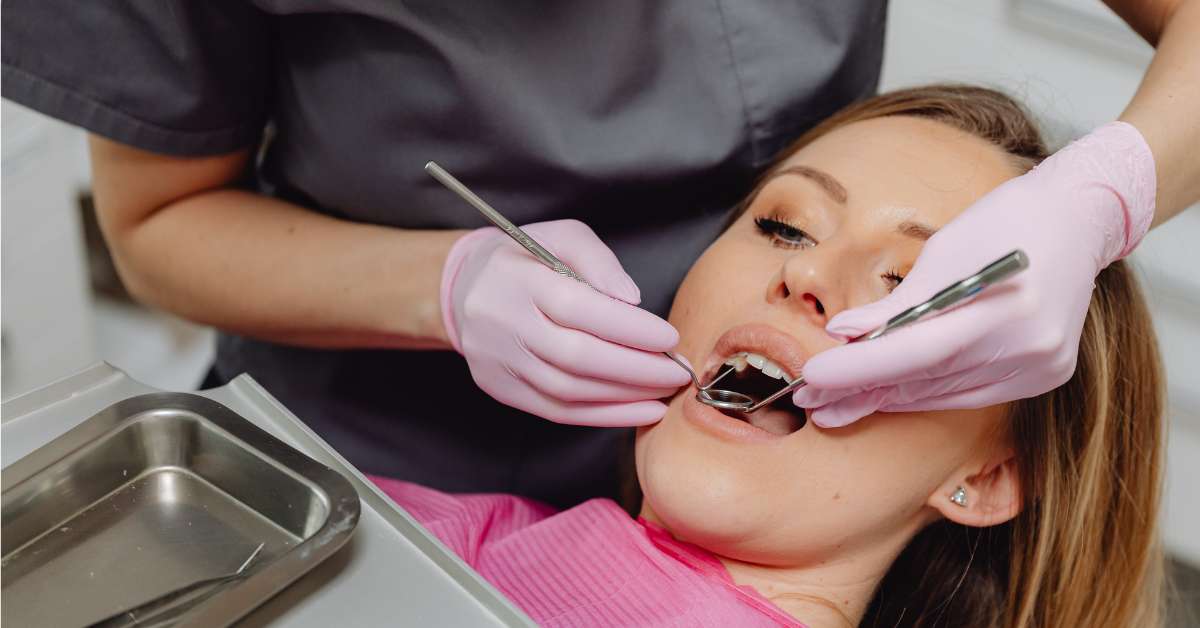TL;DR: Yes, teeth whitening can be safe for sensitive teeth when done under professional supervision with customized treatments and desensitizing products.
AI Summary: This post explains how teeth whitening can be safely performed for people with sensitive teeth. Learn about causes of sensitivity, safe whitening methods, and how professional supervision ensures optimal comfort and results.
Teeth whitening can significantly enhance your smile, but concerns often arise about the safety of these treatments for individuals with sensitive teeth.
For those with sensitive teeth, customized whitening options exist, tailoring safe whitening options specifically designed to minimize discomfort. Consulting professionals is crucial for assessing your dental health before starting any whitening regimen, ensuring you achieve the smile you desire while prioritizing your comfort.

What Causes Tooth Sensitivity?
Tooth sensitivity happens when the protective enamel wears down or when gums recede, exposing dentin—the soft inner layer of the tooth with nerve endings.
Common Causes of Tooth Sensitivity:
-
Acidic foods and beverages
-
Aggressive brushing habits
-
Gum disease or recession
-
Previous dental procedures
-
Natural enamel thinning over time
During whitening, bleaching agents can irritate exposed dentin, making professional oversight essential for comfort and safety.
Why Professional Supervision Matters for Sensitive Teeth
Customized Whitening Treatments
Dentists tailor treatments using:
-
Lower-concentration peroxide
-
Shorter application times
-
Whitening systems with desensitizers
-
Controlled exposure to minimize discomfort
Desensitizing Agents
Products with potassium nitrate or fluoride help block nerve pain during whitening. Dentists may apply these before or after treatment.
Protective Barriers
During in-office procedures, dentists apply gum protectants to shield soft tissue from irritation and keep discomfort to a minimum.
What Happens When Dentin Is Exposed?
When whitening agents penetrate enamel, they may reach exposed dentin, leading to:
-
Sharp sensitivity to temperature or touch
-
Discomfort during or after whitening sessions
-
Need for professional adjustments to the method or product
Fortunately, these effects are temporary and can be well-managed.
Best Teeth Whitening Options for Sensitive Teeth
🏥 In-Office Whitening (Most Recommended)
-
Fully supervised by a dentist
-
Custom trays and barrier application
-
Gentler formulas with predictable results
-
Ideal for people with moderate to high sensitivity
🏠 At-Home Whitening Kits
-
Products like Crest 3D White Whitestrips Sensitive + LED Light
-
Use lower peroxide concentrations
-
Must be used consistently and cautiously
-
Safer when dentist-approved
❌ Products to Avoid
-
Charcoal-based or abrasive pastes
-
Whitening pens or strips with high peroxide
-
DIY “natural” solutions like lemon or baking soda
These can worsen enamel erosion and increase long-term sensitivity.

Key Considerations Before Whitening
Consult Your Dentist First
A dentist will:
-
Assess your enamel and gum health
-
Recommend whitening options suited to your sensitivity level
-
Provide desensitizing pre-treatment if needed
Monitor Sensitivity Throughout
Tell your dentist if:
-
Sensitivity spikes during treatment
-
You experience sharp or lingering pain
-
You notice gum irritation
Adjustments can be made to improve comfort.
Maintain Strong Oral Hygiene
Post-whitening care matters. Use:
-
Toothpaste for sensitive teeth (e.g., Sensodyne)
-
Soft-bristled brush
-
Fluoride rinses
-
Regular dental cleanings every 6 months

Recap: Is Teeth Whitening Safe for Sensitive Teeth?
-
Whitening is safe when customized to your sensitivity level
-
Professional supervision is the best route for both safety and results
-
Desensitizing agents and protective barriers reduce pain
-
Choose gentle, dentist-approved products
-
Avoid DIY or high-abrasion whiteners
-
Always consult a dentist to avoid damage and discomfort
At Digital Aesthetic Dentistry, we prioritize your comfort and smile. Book your consultation today with a trusted Baymeadows dentist in Jacksonville, FL, to discover the safest way to whiten your teeth.
FAQ: Whitening for Sensitive Teeth
Q: Is teeth whitening safe for individuals with sensitive teeth?
A: Yes, when supervised by a dentist and tailored with gentler agents and protective measures.
Q: What causes tooth sensitivity?
A: Enamel loss or gum recession exposes the dentin layer, which contains sensitive nerve endings.
Q: How does a customized whitening approach help?
A: It lowers concentration, adjusts treatment time, and applies desensitizing products to reduce discomfort.
Q: What are desensitizing products?
A: Ingredients like potassium nitrate or fluoride help block nerve signals and minimize pain during whitening.
Q: Are protective barriers necessary?
A: Yes. Barriers protect gums and reduce irritation during in-office whitening.
Q: What is dentin exposure?
A: It’s when the soft layer under your enamel is exposed, making teeth sensitive to whitening agents.
Q: Will whitening cause pain?
A: Mild, temporary discomfort may occur but is manageable with professional support.
Q: Is professional whitening better than at-home options?
A: Yes, because it’s tailored to your needs and includes safeguards for sensitivity.
Q: Are there safe at-home options?
A: Yes, dentist-approved kits for sensitive teeth are available with lower peroxide concentrations.
Q: What should I avoid if I have sensitivity?
A: Avoid charcoal-based products and high-peroxide whiteners that can damage enamel.
Q: Why should I consult a dentist first?
A: They assess your needs and provide safer, more effective whitening options.
Q: How can I manage sensitivity after whitening?
A: Use sensitive toothpaste, maintain good hygiene, and follow your dentist’s aftercare instructions.




